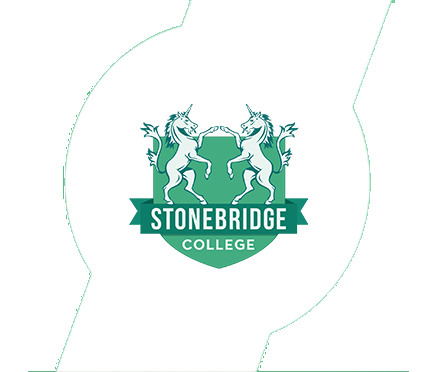Access to Higher Education Diploma (Engineering).

Access to Higher Education Diploma (Engineering)
This Course at a Glance
- Solve real-world problems with effective solutions
- Get qualified for a host of dynamic and innovative careers
- Perfect for creative and scientifically minded people
- Go to university without A Levels
- Learn at home
- No exams
About Your Diploma
Engineering offers a world of opportunities for those who want to significantly contribute to various industries. Professional engineers are indispensable in almost every sector, from electronics to defence, due to their specialised skills.
The Access to Higher Education Diploma (Engineering) is your gateway to pursuing an engineering degree. This course will equip you with the necessary skills to design, construct, and troubleshoot within the engineering realm.
If you lack A-Levels, this diploma provides an excellent alternative, being equivalent to three A-Levels. It lays the groundwork for your degree studies, giving you the essential knowledge needed to advance.
This nationally recognised program covers vital engineering concepts, such as atomic structure, molarity and chemical reactions, and mechanical engineering principles.
Mathematical proficiency is crucial in engineering, so it's important to have strong numerical skills when starting this course. You will learn the mathematical techniques engineers use daily to carry out their tasks. Every part of this course is structured to jumpstart your engineering career.
Be sure to confirm with your prospective university that they accept Access to Higher Education Diplomas before applying.
Getting Started
Qualification: Access to Higher Education Diploma (Engineering)
On successful completion of the Access to Higher Education Diploma (Engineering), (QAA aim code: 40012852), you will receive a Skills & Education Group Access, QAA recognised, Access to Higher Education Diploma at Level 3. As part of your programme, you will also receive help as well as guidance on your university application and the research you need to do to get the most out of your diploma.
Requirements for Entry
Anyone wishing to continue their education with an Access to Higher Education Diploma, it is necessary they have a GCSE Grade A-C in maths and English (or Functional Skills Level 2 or new GCSE Grade 4-9) with a desire to continue a related degree at university. If you do not hold these qualifications then you must be working towards them whilst completing your Access to HE Diploma.
Our Access to Higher Education Diplomas fulfil entry criteria for a broad range of university degrees and can be used in conjunction with the standard UCAS application process. In short, Access to HE Diplomas have a track record of helping learners get to the university and degree of their choice. Learners must bear in mind each university has its own set of admission criteria and places are subject to demand. Varying admission criteria can include but are not limited to the following:
- Number of credits to be attained at merit or distinction level.
- Successfully passing a face-to-face interview at the University.
- Passing a University’s proprietary literacy and numeracy assessments.
- Completion of specified work placements or work experience.
- GCSE Grade A-C (new system 4-9) in maths and English (or equivalent Level 2 such as Functional Skills).
Learners must undertake their own research to ensure their Diploma gives them the best possible chance of gaining entry to their university of choice. It is not possible for Stonebridge Associated Colleges to accept any liability if any Access to Higher Education Diploma student fails to secure an offer from a higher education institution.
Open College Network West Midlands are a national Awarding Organisation, regulated by Ofqual, the Quality Assurance Agency for Higher Education (QAA) and Qualifications Wales, to develop and award nationally recognised qualifications.
Open College Network West Midlands work in partnership with employers, training providers, colleges, universities, schools and voluntary and community organisations to offer vocational credit-based qualifications, Access to Higher Education Diplomas and quality assured Customised Accreditation that enables learners gain employment or to progress into further learning and Higher Education. They also Quality Endorse organisations internal training and skills delivery.
As part of the Awarding Organisation requirements, to receive certification for this training course you must be subscribed for a minimum period of 9 months. The minimum subscription period is measured in total months subscribed, which do not have to be consecutive.
This means that if your personal circumstances change (time available to study, financial pressures etc.), you can cancel/pause your study and payments at any time. If you decide to return to your studies at a later date, you can simply reactivate your subscription and continue from where you left off (we will save all your course progress). Using our subscription service you are not tied into a credit agreement.
To study an Access to HE Diploma you must be resident in the UK and have a UK postcode.
You must hold Level 2 qualifications in both English and Maths, or be working towards them alongside studying your Access to Higher Education Diploma.
University Entry Criteria
It must be reiterated that each university will set its own admission criteria. So, you must check with your desired institution if your Access to HE Diploma and other qualifications will be accepted.
In many cases, to get started on healthcare courses at university, you will need:
- A certain number of credits passed with a merit or a distinction grade
- A face-to-face interview at the university
- Literacy and numeracy assessments provided by the university
- Course-related work placements or work experience
- GCSE Grade C/4 or above in Maths and English (or equivalent Level 2 such as Functional Skills/Key Skills, etc.)
It is your responsibility to check that your Access to HE Diploma will be accepted as part of these entry requirements for your chosen degree. Stonebridge will not be held accountable if completing this Access to Higher Education Diploma doesn’t secure you a position with a higher education institution.
Minimum Age Restriction
This course is ideally suited to those who have completed full-time education but have not achieved the grades required to get into university.
Average Completion Timeframe
The average time it takes our learners to complete the course is 9-12 months.
Assessment Requirements
A range of assessment methodologies are used, including: academic report, essay, case study analysis, illustrated report, journal article, portfolio, academic poster, presentation (video and audio recording), developing promotional activity, series of questions, academic writing skills tasks.
In addition to the qualification units, you will also be required to complete short introductory tasks at the start of your course to support the development of your academic study skills.
Exams Required
There are no exams included in the assessment of the course.
Additional Requirements
Learners must be actively studying for a minimum of six months before results can be ratified and certificates ordered. The six month period does not start until you have completed and passed the course induction and you must be submitting assignments regularly (in line with the deadlines in your Individual Learning Plan) to meet this six month requirement. Certificates can only be issued once your course is paid for in full.
Certification Timeframe
You can expect to receive your certificate 12-16 weeks from your final assignment being marked and graded, depending on the time of year. You will be provided with regular updates throughout the certification process so that you are fully informed of your individual timeframes.
Module 1: Academic Writing Skills
Upon successful completion of this module, you will:
- Be able to structure a written response
- Be able to develop a structured response to a plan
- Be able to present the response appropriately for audience and purpose
- Understand how to apply academic writing principles to own work
Module 2: Reading and Note Making
Upon successful completion of this module, you will:
- Understand a range of reading strategies
- Understand the use of language in terms of the purpose and context of a range of texts
- Be able to use methods for developing notes from a range of sources
Module 3: The Structure of the Atom
Upon successful completion of this module, you will:
- Understand the properties of protons, electrons and neutrons
- Understand the distribution of protons, neutrons and electrons in an atom/isotope
- Understand s, p and d orbitals
- Understand the relationship between ionisation energies and reactivity
- Understand how ionisation energy data is reflected in the periodic table
Module 4: Arrangement and Trends in the Periodic Table
Upon successful completion of this module, you will:
- Understand the arrangement of elements in the periodic table
- Understand the periodicity of period 3 of the periodic table
- Understand ionisation energies in relation to period 3
- Understand the oxidation and reduction effects of reactions
- Understand reactions of the Group 2 metals
Module 5: Using Algebra
Upon successful completion of this module, you will:
- Be able to use series
- Be able to perform logarithmic calculations
- Be able to solve problems involving surds
- Be able to solve algebraic equations
Module 6: Principles of Mechanical Engineering
Upon successful completion of this module, you will:
- Be able to perform vector calculations
- Be able to perform vector resolution calculations
- Understand uniformly accelerated motion
- Be able perform projectile motion calculations
- Be able to use Newton’s Laws of Motion
- Be able to perform calculations involving the principles of momentum and conservation
- Understand the concepts of energy, work and power
- Understand the components of internal energy
- Be able to perform calculations related to the ideal gas laws
- Understand the basic principles of kinetic theory of gases
Module 7: Trigonometric Functions, Ratios and Rules
Upon successful completion of this module, you will:
- Be able to use trigonometric functions and ratios
- Be able to solve equations and problems by employing trigonometric rules
- Be able to construct proofs by applying trigonometric
- Be able to illustrate trigonometric functions graphically
Module 8: Calculus
Upon successful completion of this module, you will:
- Be able to solve a problem involving coordinate geometry of straight lines
- Be able to perform and apply differentiation on a simple function
- Be able to perform and apply integration
Module 9: Hydrocarbons, Alkenes and Alkanes
Upon successful completion of this module, you will:
- Understand the impact of organic compounds
- Understand alkane structure and reactions
- Understand alkene structure and reactions
Module 10: Mathematical Principles Applied to Engineering
Upon successful completion of this module, you will:
- Be able to assess complex expressions and solve engineering problems using the laws of logarithms and indices
- Be able to use algebraic techniques to solve problems
- Be able to solve engineering problems using a range of mathematical techniques
Module 11: Molarity and Chemical Change
Upon successful completion of this module, you will:
- Be able to calculate solution concentrations
- Understand enthalpy change
- Be able to analyse data to determine reaction order
- Understand chemical equilibrium
Module 13: Energy and Motion in Mechanical Science
Upon successful completion of this module, you will:
- Be able to perform linear and angular motion calculations
- Be able to perform calculations on the effect of forces on materials
- Be able to solve problems related to friction
- Be able to perform heat energy and transfer calculations
- Be able to perform torque related calculations
Module 14: Engineering Calculus
Upon successful completion of this module, you will:
- Be able to use differentiation techniques applied to engineering
- Be able to use calculus to solve engineering problems
- Be able to apply integration techniques
Module 15: Conducting a Design Project
Upon successful completion of this module, you will:
- Be able to prepare a design specification for an engineered product, from a given design brief
- Be able to produce alternative design solutions for an engineered product
Module 16: Algebraic and Trigonometric Techniques in Engineering
Upon successful completion of this module, you will:
- Be able to apply algebraic techniques in engineering applications
- Be able to use matrix algebra to solve simple technical problems
- Be able to perform trigonometric functions to calculate basic and inverse ratios and plot equations
- Be able to prove trigonometric identities and apply rules to solve engineering problems
- Be able to use binomial theorem to expand mathematical expressions and solve engineering problems
In addition to the qualification units, you will also be required to complete a course induction which comprises of three short introductory tasks to support the development of your academic study skills.

A range of units make up this qualification, with an assignment at the end of each. You will submit your work to your tutor for marking and tailored feedback. You must acquire 60 credits in total to achieve the Access to HE Diploma (Engineering). Of these credits, 45 will be taken from graded units which focus on academic content. The remaining 15 come from ungraded units included to help you advance your study skills.
In addition to the qualification units, you will also be required to complete short introductory tasks at the start of your course to support the development of your academic study skills.
As part of your programme, you will also receive help as well as guidance on your university application and the research you need to conduct.
VALUE
Annual
- 100% Online
- Full Tutor Support
- No Credit Checks or Credit Agreement
Monthly
- 100% Online
- Full Tutor Support
- No Credit Checks or Credit Agreement
Free 7-Day Trial
Register for a 7-day FREE trial (your payment details will be taken at checkout but not charged). Once the trial period ends you will be charged the monthly fee unless you cancel. Cancel Anytime. No Commitment.- 100% Online
- Full Tutor Support
- No Credit Checks or Credit Agreement
This Course at a Glance
- Solve real-world problems with effective solutions
- Get qualified for a host of dynamic and innovative careers
- Perfect for creative and scientifically minded people
- Go to university without A Levels
- Learn at home
- No exams
About Your Diploma
Engineering offers a world of opportunities for those who want to significantly contribute to various industries. Professional engineers are indispensable in almost every sector, from electronics to defence, due to their specialised skills.
The Access to Higher Education Diploma (Engineering) is your gateway to pursuing an engineering degree. This course will equip you with the necessary skills to design, construct, and troubleshoot within the engineering realm.
If you lack A-Levels, this diploma provides an excellent alternative, being equivalent to three A-Levels. It lays the groundwork for your degree studies, giving you the essential knowledge needed to advance.
This nationally recognised program covers vital engineering concepts, such as atomic structure, molarity and chemical reactions, and mechanical engineering principles.
Mathematical proficiency is crucial in engineering, so it's important to have strong numerical skills when starting this course. You will learn the mathematical techniques engineers use daily to carry out their tasks. Every part of this course is structured to jumpstart your engineering career.
Be sure to confirm with your prospective university that they accept Access to Higher Education Diplomas before applying.
Getting Started
Qualification: Access to Higher Education Diploma (Engineering)
On successful completion of the Access to Higher Education Diploma (Engineering), (QAA aim code: 40012852), you will receive a Skills & Education Group Access, QAA recognised, Access to Higher Education Diploma at Level 3. As part of your programme, you will also receive help as well as guidance on your university application and the research you need to do to get the most out of your diploma.
Requirements for Entry
Anyone wishing to continue their education with an Access to Higher Education Diploma, it is necessary they have a GCSE Grade A-C in maths and English (or Functional Skills Level 2 or new GCSE Grade 4-9) with a desire to continue a related degree at university. If you do not hold these qualifications then you must be working towards them whilst completing your Access to HE Diploma.
Our Access to Higher Education Diplomas fulfil entry criteria for a broad range of university degrees and can be used in conjunction with the standard UCAS application process. In short, Access to HE Diplomas have a track record of helping learners get to the university and degree of their choice. Learners must bear in mind each university has its own set of admission criteria and places are subject to demand. Varying admission criteria can include but are not limited to the following:
- Number of credits to be attained at merit or distinction level.
- Successfully passing a face-to-face interview at the University.
- Passing a University’s proprietary literacy and numeracy assessments.
- Completion of specified work placements or work experience.
- GCSE Grade A-C (new system 4-9) in maths and English (or equivalent Level 2 such as Functional Skills).
Learners must undertake their own research to ensure their Diploma gives them the best possible chance of gaining entry to their university of choice. It is not possible for Stonebridge Associated Colleges to accept any liability if any Access to Higher Education Diploma student fails to secure an offer from a higher education institution.
Open College Network West Midlands are a national Awarding Organisation, regulated by Ofqual, the Quality Assurance Agency for Higher Education (QAA) and Qualifications Wales, to develop and award nationally recognised qualifications.
Open College Network West Midlands work in partnership with employers, training providers, colleges, universities, schools and voluntary and community organisations to offer vocational credit-based qualifications, Access to Higher Education Diplomas and quality assured Customised Accreditation that enables learners gain employment or to progress into further learning and Higher Education. They also Quality Endorse organisations internal training and skills delivery.
Module 1: Academic Writing Skills
Upon successful completion of this module, you will:
- Be able to structure a written response
- Be able to develop a structured response to a plan
- Be able to present the response appropriately for audience and purpose
- Understand how to apply academic writing principles to own work
Module 2: Reading and Note Making
Upon successful completion of this module, you will:
- Understand a range of reading strategies
- Understand the use of language in terms of the purpose and context of a range of texts
- Be able to use methods for developing notes from a range of sources
Module 3: The Structure of the Atom
Upon successful completion of this module, you will:
- Understand the properties of protons, electrons and neutrons
- Understand the distribution of protons, neutrons and electrons in an atom/isotope
- Understand s, p and d orbitals
- Understand the relationship between ionisation energies and reactivity
- Understand how ionisation energy data is reflected in the periodic table
Module 4: Arrangement and Trends in the Periodic Table
Upon successful completion of this module, you will:
- Understand the arrangement of elements in the periodic table
- Understand the periodicity of period 3 of the periodic table
- Understand ionisation energies in relation to period 3
- Understand the oxidation and reduction effects of reactions
- Understand reactions of the Group 2 metals
Module 5: Using Algebra
Upon successful completion of this module, you will:
- Be able to use series
- Be able to perform logarithmic calculations
- Be able to solve problems involving surds
- Be able to solve algebraic equations
Module 6: Principles of Mechanical Engineering
Upon successful completion of this module, you will:
- Be able to perform vector calculations
- Be able to perform vector resolution calculations
- Understand uniformly accelerated motion
- Be able perform projectile motion calculations
- Be able to use Newton’s Laws of Motion
- Be able to perform calculations involving the principles of momentum and conservation
- Understand the concepts of energy, work and power
- Understand the components of internal energy
- Be able to perform calculations related to the ideal gas laws
- Understand the basic principles of kinetic theory of gases
Module 7: Trigonometric Functions, Ratios and Rules
Upon successful completion of this module, you will:
- Be able to use trigonometric functions and ratios
- Be able to solve equations and problems by employing trigonometric rules
- Be able to construct proofs by applying trigonometric
- Be able to illustrate trigonometric functions graphically
Module 8: Calculus
Upon successful completion of this module, you will:
- Be able to solve a problem involving coordinate geometry of straight lines
- Be able to perform and apply differentiation on a simple function
- Be able to perform and apply integration
Module 9: Hydrocarbons, Alkenes and Alkanes
Upon successful completion of this module, you will:
- Understand the impact of organic compounds
- Understand alkane structure and reactions
- Understand alkene structure and reactions
Module 10: Mathematical Principles Applied to Engineering
Upon successful completion of this module, you will:
- Be able to assess complex expressions and solve engineering problems using the laws of logarithms and indices
- Be able to use algebraic techniques to solve problems
- Be able to solve engineering problems using a range of mathematical techniques
Module 11: Molarity and Chemical Change
Upon successful completion of this module, you will:
- Be able to calculate solution concentrations
- Understand enthalpy change
- Be able to analyse data to determine reaction order
- Understand chemical equilibrium
Module 13: Energy and Motion in Mechanical Science
Upon successful completion of this module, you will:
- Be able to perform linear and angular motion calculations
- Be able to perform calculations on the effect of forces on materials
- Be able to solve problems related to friction
- Be able to perform heat energy and transfer calculations
- Be able to perform torque related calculations
Module 14: Engineering Calculus
Upon successful completion of this module, you will:
- Be able to use differentiation techniques applied to engineering
- Be able to use calculus to solve engineering problems
- Be able to apply integration techniques
Module 15: Conducting a Design Project
Upon successful completion of this module, you will:
- Be able to prepare a design specification for an engineered product, from a given design brief
- Be able to produce alternative design solutions for an engineered product
Module 16: Algebraic and Trigonometric Techniques in Engineering
Upon successful completion of this module, you will:
- Be able to apply algebraic techniques in engineering applications
- Be able to use matrix algebra to solve simple technical problems
- Be able to perform trigonometric functions to calculate basic and inverse ratios and plot equations
- Be able to prove trigonometric identities and apply rules to solve engineering problems
- Be able to use binomial theorem to expand mathematical expressions and solve engineering problems
In addition to the qualification units, you will also be required to complete a course induction which comprises of three short introductory tasks to support the development of your academic study skills.

A range of units make up this qualification, with an assignment at the end of each. You will submit your work to your tutor for marking and tailored feedback. You must acquire 60 credits in total to achieve the Access to HE Diploma (Engineering). Of these credits, 45 will be taken from graded units which focus on academic content. The remaining 15 come from ungraded units included to help you advance your study skills.
In addition to the qualification units, you will also be required to complete short introductory tasks at the start of your course to support the development of your academic study skills.
As part of your programme, you will also receive help as well as guidance on your university application and the research you need to conduct.
Our Advisors.
Our team of course advisors are keen to help.
Call us now on 0121 392 8288
Alternatively, please complete the form below and we’ll get back to you as soon as possible.
Our student support team is here for you.












